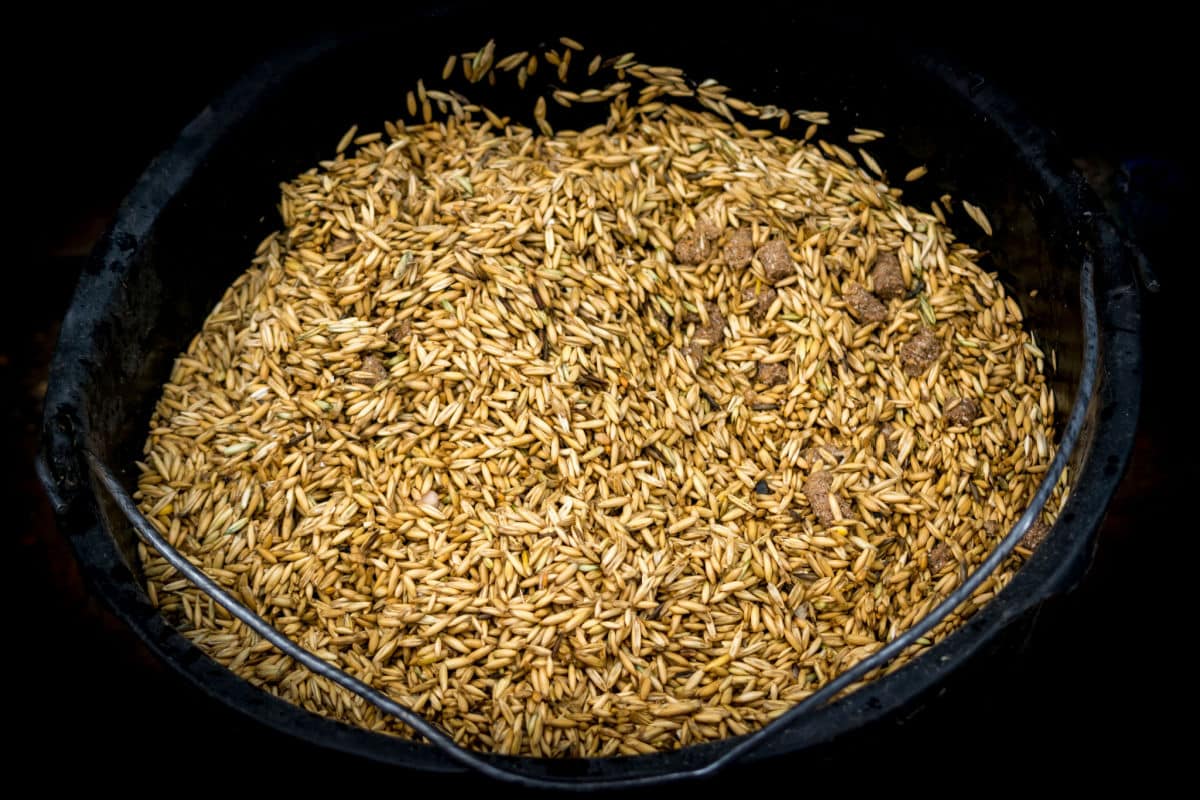In Monday Myths we debunk common misconceptions about a range of topics regarding equine digestive health and care. These are real statements made by real horse people. Have a question or topic you would like to see covered? Submit your idea here.
Statement: Your horse is showing signs of a hindgut problem. Add a probiotic supplement to its feed.
Today we examine the value (or not) of adding probiotics to a horse’s feed to support hindgi tract health. Probiotics, also known as direct-fed microbials, are live microorganisms contained in a feed or supplement product that are thought to support the beneficial microbial population in the digestive tract.
The Theory Behind Probiotics for Horses
Horses are hindgut fermenters – meaning that they utilize a population of beneficial bacteria and other microbes to help digest the bulk of their feed. Fiber, the main component of forages like grass and hay, is broken down by these microorganisms in the cecum to produce nutrients that are absorbed through the horse’s colon. The Volatile Fatty Acids (VFAs) produced and absorbed in this process provide the horse with as much as 70% of its energy requirements.
The healthy balance between these beneficial microbes in the equine hindgut and harmful bacteria that also exist there can be easily damaged, for example, when:
- undigested starch from concentrated feeds reaches the hindgut
- hours are spent with no grass or hay to munch
- the type of feed (grain or hay) is changed without a gradual transition
Any change in feed or feeding patterns, as well as the stress of training, travel, and competition, can negatively impact the delicate balance of the equine hindgut and this microbial population.
The theory behind feeding probiotics, then, is that adding in more of the beneficial bacteria needed for digestion will counteract digestive upset caused by an imbalance of bad over good bacteria in the hindgut. (Learn more about how probiotics and prebiotics work from TheHorse.com).
Why Probiotics May Not Work As Advertised
While there is some research to support the use of probiotics in horses, it is neither extensive nor conclusive. The research is slim regarding which specific types of bacteria in probiotic supplements may be helpful or harmful. However, one such study done on a strain of lactobicillus – one of the most common bacteria types used in probiotics – showed that it actually caused diarrhea in neonatal foals severe enough to require veterinarian intervention.
The bigger problem, though, is that each horse has its own unique bacterial environment in the hindgut. And, research shows that the horse’s bacterial balance is established within the first few days of its life. The numbers and types of good bacteria vary from horse to horse based on what they eat, their individual biological chemistry, and other factors. We just don’t know precisely how much of what kinds of good bacteria each horse needs.
Because the bacterial population is so highly-individualized, there’s no saying whether a cookie-cutter probiotic will provide any benefit. It’s not likely to hurt your horse – but chances are slim that it will help in a significant way.
Feeding probiotics balances a horse’s hindgut = the jury is still out on this one. The theory is sound but the application isn’t definite as each horse’s bacterial environment is different.



